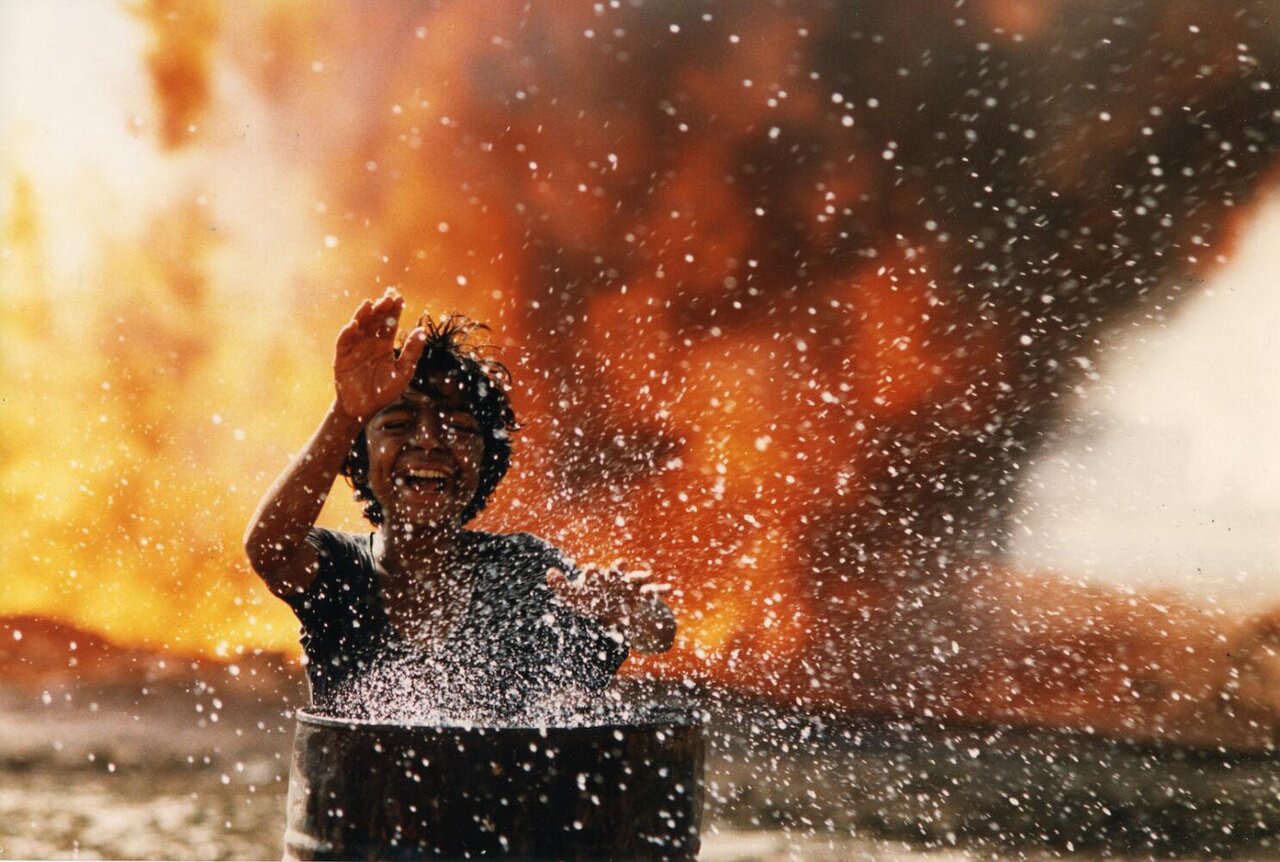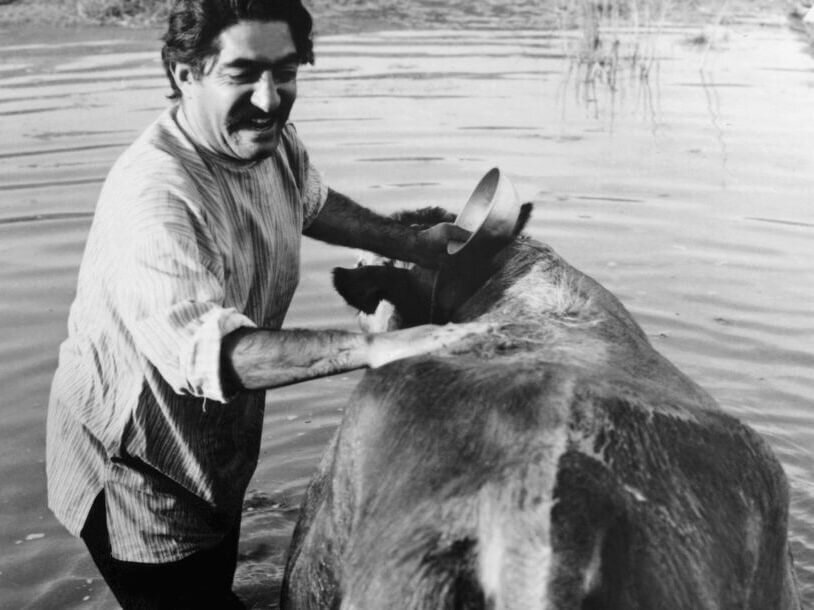Iranian cinema's global ascent: the double-edged sword of international acclaim

TEHRAN-Iranian cinema has captured the world's attention with its distinct artistry, social relevance, and poignant storytelling.
Iran's National Cinema Day is celebrated every year on September 12 to recognize and honor the remarkable impact of Iranian cinema on the global film industry. The Iranian film industry has not only won critical acclaim at international film festivals but also imprinted its unique artistic identity in the history of cinema.
However, Iranian cinema's global ascent comes with a double-edged sword of international acclaim. While the recognition of Iranian films on the global stage has helped to raise awareness of the culture and social issues in Iran, it has also created challenges for Iranian filmmakers.
It has become increasingly challenging to strike a balance between showcasing Iranian social and cultural issues in a manner that resonates with a worldwide audience, while still preserving the genuine essence of Iranian cinematic style. Iranian filmmakers are now striving to uphold their artistic integrity while meeting the expectations of the worldwide audience.
Iranian cinema is renowned for its visionary filmmakers such as Abbas Kiarostami and other notable directors who created unforgettable masterpieces that have left an indelible mark on the global cinematic landscape. Their works skillfully captured the essence of human stories and societal complexities with a depth and nuance that resonated beyond borders.

However, it is vital to acknowledge and pay homage to the pioneering films that paved the way for this cinematic journey. One such legendary film is Dariush Mehrjui's "The Cow," which debuted in 1969 and is considered a masterpiece of Iranian cinema. The film explored themes of rural life and existentialism, ushering in a new direction for the industry. Its global recognition laid the foundation for the subsequent international success of Iranian cinema and left an enduring impact on the art form.
In the aftermath of the Islamic Revolution, cinema became a powerful tool for exporting the cultural changes and leaps that had occurred under the new political system. One of the key objectives was to raise awareness of the origins, reasons for emergence, and impact of the Revolution on both Iranian and global populations.
A standout film in this effort was "The Runner," a 1984 drama by Amir Naderi that is widely regarded as an Iranian new wave masterpiece. The film tells the story of a young boy from southern Iran who struggles to assert his rights while navigating the challenging terrain of the region's oil refineries. Through the use of striking imagery, particularly the fire and water imagery which symbolizes the Iranian people's struggles, the film provided a poignant commentary on the political situation at the time.
Furthermore, "The Runner" was also a milestone for Iranian cinema in the global arena, as it was the first film to be presented at foreign festivals after the Islamic Revolution. The film's lasting impact and recognition in the international film community speaks to the immense talent and impact of Iranian filmmakers and their commitment to offering a nuanced, complex portrayal of Iranian society and culture.
Winning international movie awards can serve as a strong catalyst for Iranian filmmakers, motivating them to explore new realms of creativity and storytelling. It infuses the industry with fresh energy, purpose, and ambition.
The global recognition garnered by award-winning Iranian films has had a significant impact on the country's film sector, attracting increased investment and improving production values. This has led to a rise in opportunities for emerging filmmakers, contributing to the industry's vitality.
Successful Iranian films that win prestigious international awards often secure lucrative distribution deals, which further fuels economic growth and development in the country. The financial resources gained are not only beneficial for filmmakers, but they also underscore the economic importance of the overall film industry. This dynamic demonstrates the significant and multifaceted influence that Iranian cinema has on both the local and global stage.
Iranian cinema has increasingly been employed as a mechanism for cultural diplomacy, facilitating greater understanding and connection between Iranian society and the world at large. It offers a unique insight into the country's rich history and contemporary complexities, illuminating lesser-known aspects of Iranian culture to a global audience.
However, as Iranian films continue to receive international accolades, critical concerns have emerged. Detractors argue that the weight of global expectations and pressures may push filmmakers towards catering to international preferences, potentially jeopardizing the authenticity of their films and distorting the representation of Iranian culture.
The risk of losing cultural authenticity is a genuine concern. While Iranian cinema has undoubtedly made significant strides in capturing the nuances of Iranian society, striking a careful balance between appeasing international audiences and staying true to cultural roots will be instrumental in ensuring the long-term success and influence of the industry.
The pursuit of international recognition in Iranian cinema has resulted in a surge of films vying for attention on the global platform. This intense competition often overshadows lesser-known Iranian filmmakers who also deserve recognition.
Unfortunately, some films submitted to festivals prioritize meeting festival policies over showcasing Iran's rich culture and art. In some cases, these festival policies may clash with Iran's own policies, undermining the country's representation. This raises concerns about whether it is the quality of the work or Western governments' policies regarding Iran that determine which films are selected for festivals.
Despite these challenges, in recent years, Iranian cinema has witnessed a remarkable ascent to global prominence, garnering critical acclaim and prestigious awards. This serves as a testament to the industry's exceptional quality and emerging strength.
Asghar Farhadi's acclaimed 2011 film "A Separation" not only won the Academy Award for Best Foreign Language Film but also inspired a new wave of Iranian filmmakers. It proved Iran's capability to produce narratives that resonate with a global audience. His 2016 production, "The Salesman," brought him his second Academy Award for Best Foreign Language Film.
Jafar Panahi's "The White Balloon," on the other hand, was among the first Iranian films to win critical acclaim at the Cannes Film Festival. It won the Camera d'Or in 1995.
In 1997, Abbas Kiarostami's "Taste of Cherry" won the Palme d'Or at the Cannes Film Festival, while Majid Majidi's "Children of Heaven" received the Grand Prix des Amériques at the Montreal World Film Festival.
Majidi's 2001 film "Baran" won the Blue Angel award at the Berlin International Film Festival, adding to the list of Iranian filmmakers with a keen eye on international events.
These trailblazers, alongside many young, emerging filmmakers, continue to push boundaries and express their unique cinematic perspectives and visions while keeping a pulse on global events.
The position of Iranian cinema on the global cinematic stage stands as a remarkable testament to the boundless capacity of storytelling and the ability of art to transcend geographical boundaries. While the recognition and awards bestowed upon Iranian filmmakers are undoubtedly motivating and enriching for the industry, they also raise concerns about artistic freedom and external influences.
In navigating the complex terrain of international acclaim, it is crucial to find a delicate balance that preserves artistic authenticity while taking advantage of the opportunities presented by global recognition. Ultimately, the worldwide triumph of Iranian cinema illuminates the undying potential of film as a medium for promoting exchange and mutual understanding across cultures and on the world platform. As Iranian filmmakers and cinema continue to thrive, they remain compelling and thought-provoking voices in the global cinematic conversation.
Photo : A scene from “The Runner” by Amir Naderi.
SAB/
Leave a Comment